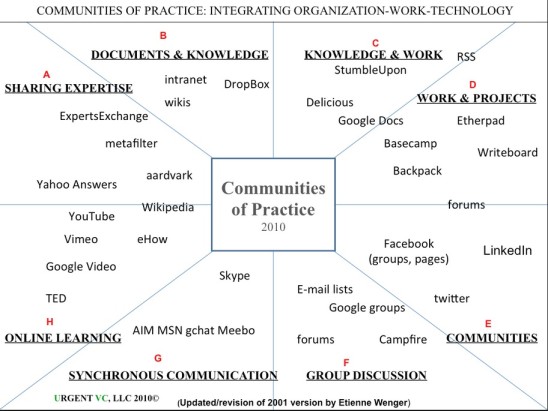Adobe Connect webinar: https://desire2learn.adobeconnect.com/_a707373752/p1sx4w2gfir/?launcher=false&fcsContent=true&pbMode=normal
1. Build personal knowledge base in web accessibility for each participant
2. Create Accessible images, diagrams and charts
3. same for audio and video
4. same for HMTL content
5. same for other formats (PDF, Word, PPT)
http://blogs.edweek.org/edweek/DigitalEducation/2014/10/screen_time_early_learners_RAND.html
screen time as the sole measure of what’s OK for children is no longer adequate, the RAND researchers argue that screen-time limits shoudn’t go the way of the VCR:
Limits on screen time may remain important in restricting use that is passive, sedentary, or noneducational, and they may also prove useful in ensuring that children engage in a balanced combination of activities.
However, a more-comprehensive definition of developmentally appropriate technology use will empower ECE providers and families to make better decisions about the ways in which young children use technology–and help maximize the benefits young children receive from this use.
my note: information on Pinterest still goes the other direction. E.g.:
http://www.pinterest.com/pin/284923113897755173/

If you are interested in sharing ideas about DJI drones, please do consider sharing them under this blog entry
Here is more on drones at our blog:
https://blog.stcloudstate.edu/ims/?s=drone
http://gazette.teachers.net/gazette/wordpress/hal-portner/standards-assessments-rubrics/
Standards
Communicating Students convey information, describe process, and express ideas in accurate, engaging, and understandable ways.
Researching Students identify and access a variety of resources through which they retrieve and organize data they have determined to be authentic and potentially relevant to their task.
Thinking Critically Students use structured methods to weigh the relevance and impact of their decisions and actions against desired outcomes and adjust accordingly.
Thinking Creatively Students comprehend and employ principles of creative and productive problem solving to understand and mitigate real-world problems.
Keep in mind, however, that standards don’t prepare students for anything. They are a framework of expectations and educational objectives. Without the organization and processes to achieve them, they are worthless.
Student Assessment
Significance An instructionally useful assessment measures students’ attainment of a worthwhile curricular aim—for instance, a high-level cognitive skill or a substantial body of important knowledge.
Teachability An instructionally useful assessment measures something teachable. Teachability means that most teachers, if they deliver reasonably effective instruction aimed at the assessment’s targets, can get most of their students to master what the test measures.
Describability A useful assessment provides or is directly based on sufficiently clear descriptions of the skills and knowledge it measures so that teachers can design properly focused instructional activities.
Reportability An instructionally useful assessment yields results at a specific enough level to inform teachers about the effectiveness of the instruction they provide.
Nonintrusiveness In clear recognition that testing time takes away from teaching time, an instructionally useful assessment shouldn’t take too long to administer—it should not intrude excessively on instructional activities.
Performance Assessment
Rubrics
Diane Ravitch blog on Anthony Cody’s book about his efforts to educate Bill Gates. The book is called “The Educator and the Oligarch: A Teacher Challenges Bill Gates.”
Anthony Cody is a teacher. For Cody, teaching is not just a job. It is his profession. It is his way of life. It is the place where his brain, his life experience, and his heart are joined.
With his blog as his platform, he trained his sights on the Gates Foundation. While others feared to criticize the richest foundation in the United States, Cody regularly devoted blogs to questioning its ideas and programs. He questioned its focus on standardized testing. He questioned its belief that teachers should be judged by the test scores of their students. He questioned its support for organizations that are anti-union and anti-teacher. He questioned its decision to create new organizations of young teachers to act as a fifth column within teachers’ unions, ready to testify in legislative hearings against the interests of teachers and unions.
http://www.nmc.org/news/announcing-horizon-report-europe-2014-schools-edition
Key Trends Accelerating Educational Technology Adoption in European Schools
“Growing Ubiquity of Social Media” and “Rethinking the Roles of Teacher” as fast trends accelerating the adoption of educational technology in European schools over the next one to two years.
Full report:
http://cdn.nmc.org/media/2014-nmc-horizon-report-EU-EN.pdf



